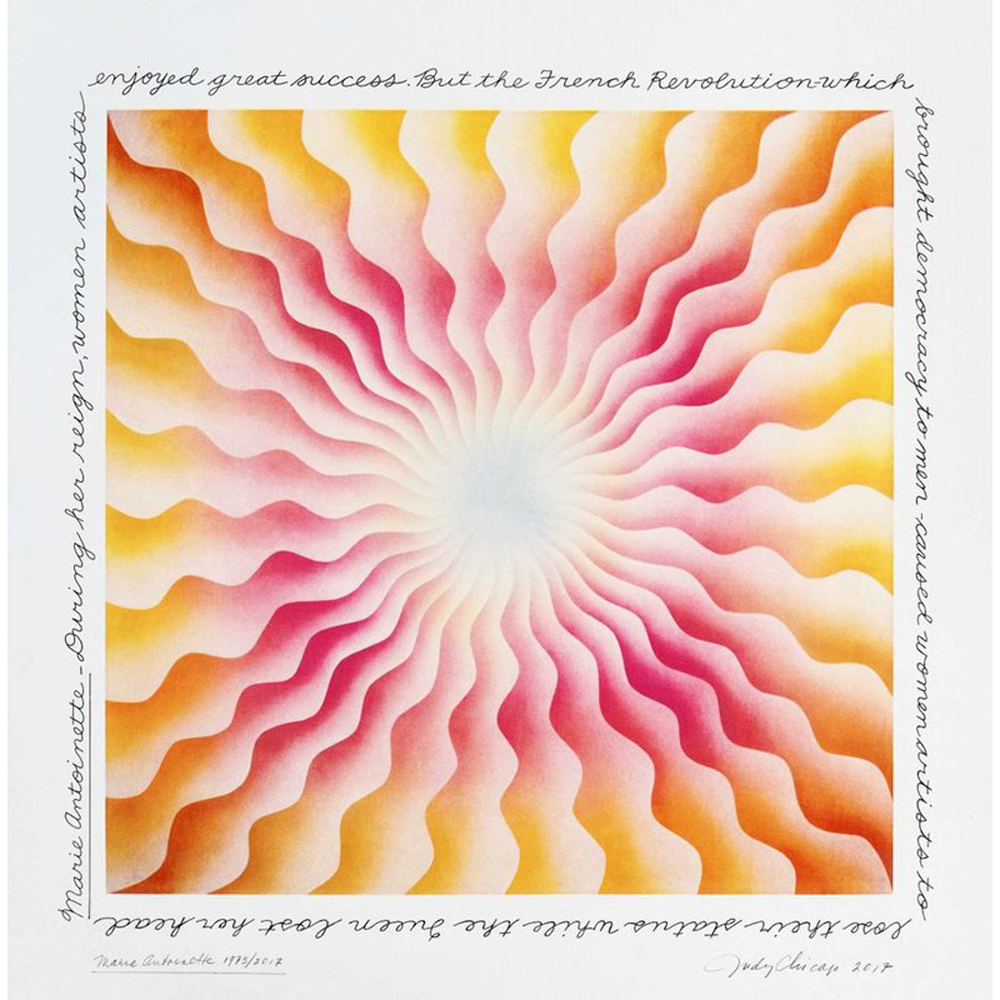Artwork Description
Marie Antoinette 1973/2017
Dimensions: 26.25 x 25.75″
Year: 2017
Media: four-color lithograph on cotton paper
Edition: x/20
ABOUT THE WORK
Judy Chicago’s Marie Antoinette from the Great Ladies series is a color lithograph based on an earlier large painting in sprayed acrylic on canvas, of the same name, from 1973. In the early 1970s Chicago developed her iconic butterfly motif, which may also be read as vaginal imagery abstracted into geometric form. This was a formative time in her career, when Chicago was shifting from the large scale, brightly hued minimal work into an art practice that focused on her experiences as a woman and as a woman artist.
The Great Ladies series may be seen as homage to their subjects, from Queen Elizabeth and Christine of Sweden to the writer Virginia Woolf. Marie Antoinette, notorious for her fate at the guillotine during the French revolution, is one of Chicago’s acknowledged great women throughout history. This series from the early 1970s, and the butterfly form as its central imagery, would later that decade expand into her epic The Dinner Party, first exhibited in 1979 and now on permanent view at The Brooklyn Museum of Art. Here an original plan for a “last supper” comprised of women grew, based on a plethora of important women who made their mark on history, into a dinner party with 39 place settings and 999 additional names on ceramic floor tiles.
In this vibrantly colored lithograph, Chicago’s composition is ringed by a text in her recognizable cursive script, which reads, “Marie Antoinette—during her reign women artists enjoyed great success. But the French Revolution-which brought democracy to men-caused women artists to lose their status while the Queen lost her head.” One need only think of Vigée Lebrun, who had to flee Paris in 1789 because of her association with the Queen. Chicago’s lithograph pays homage to the great women in history, not only monarchs and rulers, but the artists who portrayed them.
Courtesy of Art + Culture Projects


